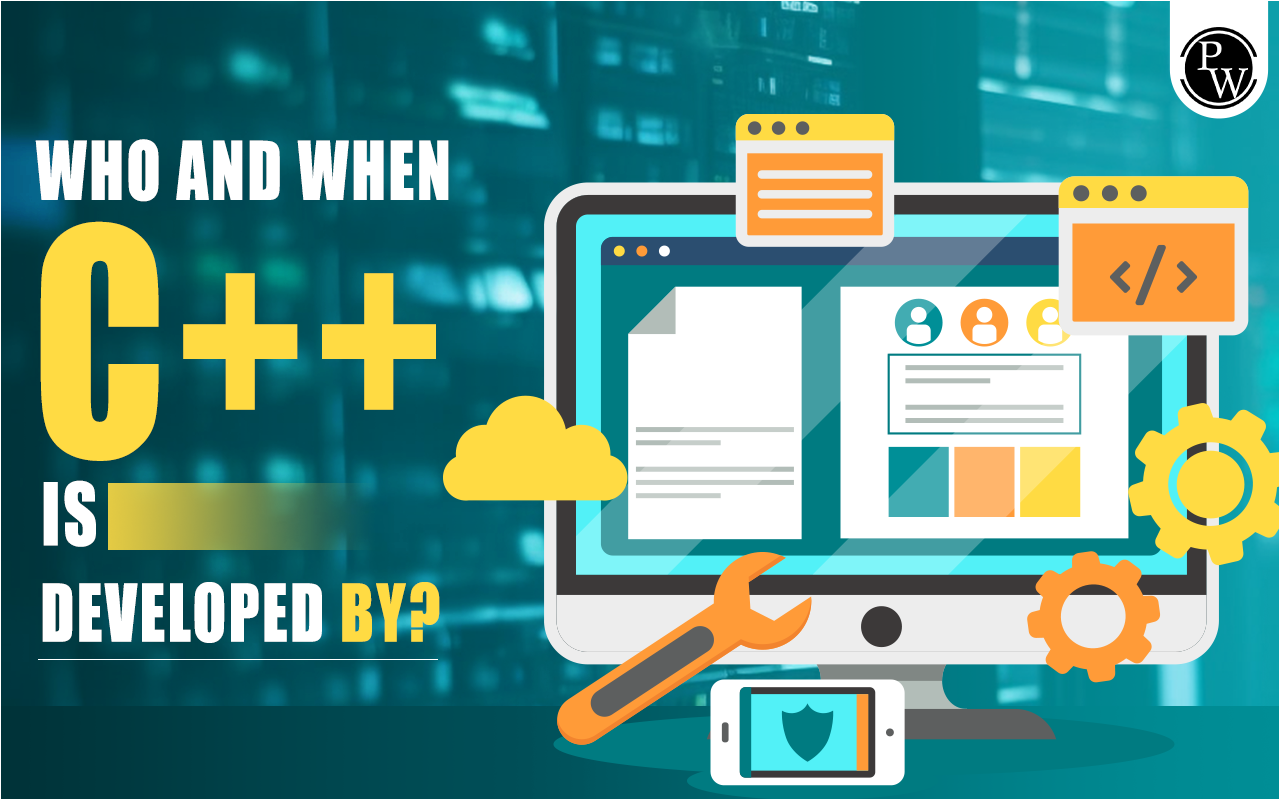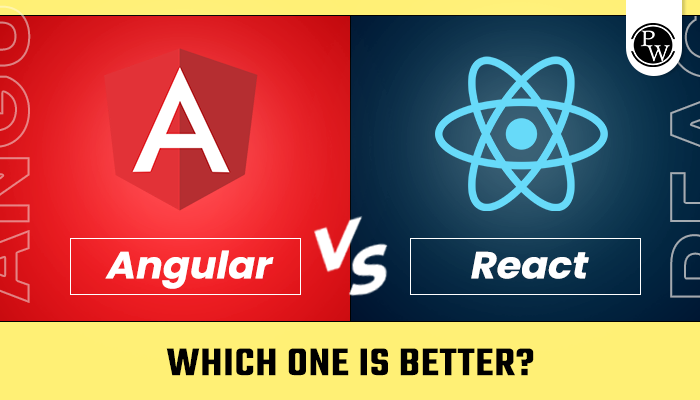C++ Developed By: In the vast landscape of programming languages, C++ stands tall as a powerful and versatile tool. It has been the backbone of countless software systems, from operating systems to game engines. Yet, how many of us truly understand where it came from and the brilliant minds behind its creation? C++ was developed by Bjarne Stroustrup as an addition to the C programming language. C++ is a language that gives programmers a very deep level of control over resources and memories.
This blog aims to unravel the fascinating history of C++, delving into the who and when of its development. If you want to build a successful career in web development, a full-stack web development course can provide you with the necessary skills needed to succeed!
What Is C++?
C++, born from C’s roots, is a potent programming language shaped by Bjarne Stroustrup at Bell Labs in the early 1980s. Valued for its efficiency, performance, and adaptability, C++ merges procedural and object-oriented programming, empowering developers to craft modular, reusable code.
A standout feature of C++ is its capability to manage memory, providing a low-level grip when needed directly—ideal for system-level programming and demanding applications. Its embrace of object-oriented principles facilitates the crafting of well-structured, easily maintainable code, employing classes and objects.
Wielding influence across diverse realms like software and game development, embedded systems, and high-performance computing, C++ holds a pivotal role. Its impact extends to technologies like the Qt framework for graphical interfaces, marking it essential for building applications demanding high performance.
With an extensive library suite and a robust community, C++ endures as a go-to language for developers seeking equilibrium between high-level abstractions and fine-grained control over system resources.
History of C++
Background of the 1970s Programming Landscape
To appreciate the birth of C++, we must first transport ourselves back to the 1970s. The programming scene was marked by languages like Fortran and Assembly, each with its own strengths and limitations. Bjarne Stroustrup, a Danish computer scientist, found himself working on simulations at Bell Labs and encountered the challenges posed by the existing programming languages. The need for a more efficient and flexible language became increasingly apparent.
The Need for a More Versatile Language
Stroustrup identified a deficiency in existing programming languages when it came to managing the intricacies of extensive software projects. There was a necessity for a language that could blend the efficiency of low-level languages like Assembly with the abstraction and organisation found in higher-level languages such as Simula. This recognition served as the catalyst for the conceptualization of what would later evolve into C++.
Prelude to the Development of C++
The evolution towards C++ commenced with Stroustrup’s endeavours on “C with Classes” during the late 1970s. This precursor established the foundation for the integration of object-oriented features into C++. Stroustrup’s objectives were straightforward; he sought to enrich C with functionalities that could streamline the development of intricate systems, rendering it more adaptable to the evolving requirements of contemporary software engineering.
By Who is C++ Developed By?
C++ was developed by Bjarne Stroustrup. Stroustrup earned a Ph.D. in computer science from the University of Cambridge during his academic journey. His initial professional path unfolded at Bell Labs, a distinguished research and development facility.
Early Career and Academic Background
Stroustrup delved into computer science with intense curiosity, pushing programming language boundaries. His academic foundation was sturdy, but challenges at Bell Labs ignited a desire to create a new language.
Influences and Motivations behind Creating C++
At Bell Labs in the late ’70s, Stroustrup, while working on simulations, encountered limitations in existing languages for large-scale projects. Exposed to Simula, an early object-oriented language, he conceived C++. His vision: a language merging low-level control and high-level abstractions, meeting modern software engineering demands.
His aim extended beyond merely crafting another programming language; rather, he aspired to devise a tool that would empower developers to produce efficient and maintainable code for intricate systems. The fusion of C’s procedural efficiency with Simula’s object-oriented grace formed the foundation of Stroustrup’s vision for C++.
The C++ Journey Begins: “C with Classes”
In the late 1970s, Stroustrup initiated the development of what he initially termed “C with Classes.” This precursor to C++ laid the groundwork for introducing classes and other features that would define the core of object-oriented programming in C++. Stroustrup’s meticulous attention to detail and dedication to addressing practical programming challenges set the scene for the language’s evolution.
C++ Key Contributors
While Bjarne Stroustrup is rightfully celebrated as the father of C++, the language’s evolution involved the collaborative efforts of several key contributors. These individuals played crucial roles during the formative years, contributing insights and code that shaped the language’s trajectory.
Andrew Koenig: A Stalwart in Standardization
Andrew Koenig, an esteemed computer scientist and prolific author, made substantial contributions to the standardisation efforts of C++. His involvement in the ANSI/ISO standardisation process ensured that C++ could transcend organisational boundaries and become a universally accepted and standardised programming language. Koenig’s dedication to the language’s formalisation solidified its place in the pantheon of programming languages.
Early Collaborators and Pioneers
The early stages of C++ development saw the collaboration of a cadre of skilled programmers and researchers. Their collective efforts, often in the crucible of Bell Labs, contributed to the refinement of C++ features and its gradual transformation into a robust programming language.
From the integration of classes to the introduction of key concepts in object-oriented programming, these pioneers played pivotal roles in shaping the language’s syntax and semantics. Their collaborative spirit laid the groundwork for C++ to mature into a tool capable of addressing the evolving needs of the software development landscape.
The C++ Community: A Living Ecosystem
Beyond the notable individuals, the C++ community as a whole has been instrumental in the language’s sustained growth and adaptability. Online forums, conferences, and collaborative projects have fostered an environment where developers worldwide can share insights, discuss best practices, and contribute to the ongoing evolution of C++. The collective wisdom of this vibrant community continues to influence the language’s trajectory.
C++ Development Timeline
Early Stages (Late 1970s)
The late 1970s marked the genesis of C++ with Stroustrup’s work on “C with Classes.” This experimental precursor, while not without its imperfections, laid the crucial groundwork for the object-oriented features that would define C++. Stroustrup, guided by a vision of a language that could seamlessly integrate procedural and object-oriented paradigms, iteratively refined his creation.
1980s – C++ Emerges
The year 1983 witnessed the formal release of C++, marking a significant milestone in its development. Developers now had a language that not only retained the efficiency of C but also introduced a structured and modular approach to programming through the inclusion of classes. The burgeoning popularity of C++ beyond the confines of Bell Labs signified its potential to become a mainstream programming language.
In the 1980s, C++ experienced rapid growth. Developers, realising its power and flexibility, embraced it for diverse applications, spanning system-level programming to application development. During this time, C++ solidified its position as a potent force in programming.
1990s – Standardization and Recognition
With widespread adoption, efforts emerged to standardise C++ for consistency and portability. In 1998, both the American National Standards Institute (ANSI) and the International Organization for Standardization (ISO) officially standardised C++, marking a pivotal moment that elevated its recognition globally.
The 1990s witnessed C++ maturing as a preferred language for critical software development projects. Its capacity to balance low-level control with high-level abstractions made it highly attractive for industries seeking robust and efficient software solutions.
Modern C++
Entering the 21st century, C++ kept growing for today’s software needs. Updates like C++11, C++14, and C++17 brought new stuff, making it more expressive, safe, and boosting developer efficiency.
Today’s C++ has smart pointers, lambda expressions, and better multithreading support, making it a leader in innovation. The C++ community keeps shaping it, ensuring it stays a relevant and powerful tool for developers worldwide.
C++ in Action
To grasp C++’s influence fully, let’s examine its practical uses. The language spearheads the creation of many triumphing software systems.
Success Stories of C++ Applications
C++ stands as the preferred tool for crafting potent applications across diverse fields. It shapes the core of operating systems such as Windows and Linux, as well as the engines propelling games like Unreal Engine and Unity.
C++ makes a lasting impact due to its effectiveness in systems programming, thanks to its efficiency and meticulous control at a low level. Simultaneously, its object-oriented attributes establish a robust groundwork for constructing intricate software structures.
Industries and Domains where C++ Excels
C++ is not confined to a specific industry; its versatility allows it to thrive in diverse domains. In finance, C++ is used for developing high-frequency trading systems. In the automotive industry, it’s employed for programming embedded systems in vehicles.
The aerospace sector relies on C++ for building software for spacecraft and aviation systems. These examples highlight the language’s adaptability and robustness across various fields.
Testimonials from Developers and Organisations
The success of C++ is not just reflected in its applications but also in the experiences of developers who choose to work with it. Many developers appreciate the fine balance that C++ strikes between performance and abstraction. Organisations value the reliability and efficiency that C++ brings to their projects, making it a preferred choice for mission-critical applications.
C++ Legacy and Impact
C++ as a Foundational Language in Computer Science
C++ stands as a foundational language in computer science, profoundly influencing subsequent programming languages. Many languages have adopted ideas from C++, showcasing its impact on their concepts and features. The focus on efficiency, low-level control, and high-level abstractions in C++ has established a lasting standard that shapes the design of today’s programming languages.
Influence on Other Programming Languages
The reach of C++ extends beyond its immediate applications. Languages like C#, Java, and Python have integrated C++-inspired elements. Object-oriented programming, a pivotal feature from C++, has become a fundamental paradigm in software development across diverse languages.
Continuing Relevance in the Tech Landscape
Even with the rise of new languages and paradigms, C++ stays relevant and evolves. Its adaptability to changing needs, combined with an active community, ensures its enduring dominance in the dynamic tech landscape.
Why Is C++ Important?
C++ stands out as a potent and adaptable programming language pivotal to the software development realm since its inception in the late 1970s. Its significance is underscored by various factors:
Efficiency and Performance
C++ permits developers to perform low-level data manipulation and grants direct entry to memory, enabling the creation of efficient code. This is crucial for tasks demanding high performance, like system-level programming, game development, and embedded systems.
Object-Oriented Programming (OOP)
C++ embodies object-oriented programming, backing encapsulation, inheritance, and polymorphism. OOP advances the creation of modular, organised code, simplifying the development, implementation, and upkeep of intricate software systems.
Cross-Platform Development
C++ operates across various platforms, allowing code to be compiled and executed on diverse operating systems with minimal adjustments. This quality makes it an optimal selection for creating applications intended to run seamlessly on multiple platforms.
Large Standard Template Library (STL)
The Standard Template Library (STL) in C++ offers a range of template classes and functions, encompassing algorithms, containers, and iterators. This library streamlines programming tasks and boosts code reusability, thereby saving developers time and effort.
Performance-Critical Applications
C++ frequently serves as the preferred language for developing performance-critical applications like game engines, real-time systems, and high-frequency trading systems. Its ability to exert low-level control over hardware resources contributes to its widespread adoption in these domains.
Community and Ecosystem
With a substantial and dynamic developer community, C++ boasts a wealth of resources, libraries, and frameworks. This active support is invaluable for both novice and seasoned developers seeking solutions or sharing knowledge.
Compatibility with C
C++ is designed to be compatible with the C programming language, allowing developers to use existing C code within C++ programs. This ensures a smooth transition for projects that may have a mix of C and C++ code.
System-Level Programming
C++ finds frequent use in system-level programming, particularly where direct access to hardware and memory is essential. The development of operating systems, device drivers, and firmware often leverages C++ due to its efficiency and low-level capabilities.
Scalability
C++ is scalable and can be used for both small-scale and large-scale projects. Its versatility allows developers to choose the level of abstraction that best fits the requirements of their project.
Industry Adoption
Many industries, including finance, telecommunications, gaming, and aerospace, heavily rely on C++ for developing high-performance and mission-critical applications. Its widespread adoption across various sectors contributes to its enduring importance.
Conclusion
C++ has evolved significantly since its inception, becoming a programming powerhouse today. The enduring success and impact of Bjarne Stroustrup’s brainchild underscore the foresight and commitment of its developers, shaping the course of programming languages and software development.
As we celebrate the success of C++, let us also appreciate the community of developers who have contributed to its growth. Whether you’re a seasoned C++ veteran or a newcomer exploring the language, understanding its origins and the minds behind its development adds a richer layer to your programming journey. As C++ continues to shape the technological landscape, the legacy of its developers lives on in the code written and systems powered by this remarkable language.
Don’t wait, enrol in the PW Skills Full-Stack Web Development course today and start your journey to becoming a full-stack web developer! Learn from the best and get hands-on experience with real-world projects Sign up today and start your new career!
C++ Developed By FAQs
Are there any notable challenges or hurdles faced during the development of C++ that impacted its design?
Yes, the early days of C++ development presented several challenges, particularly in reconciling the need for low-level control with high-level abstractions. Bjarne Stroustrup and the development team grappled with finding the right balance to create a language that would be powerful, efficient, and adaptable to the demands of modern software engineering.
How has C++ influenced the design of other programming languages beyond the ones mentioned in the blog?
C++ has significantly influenced the design of various programming languages. Beyond the mentioned languages like C#Java, and Python, the concepts introduced by C++—such as object-oriented programming—have become fundamental in shaping the architecture of many modern languages. Its impact resonates across a broad spectrum of programming paradigms.
What role did the C++ community play in the language's evolution post the 2000s?
The C++ community played a crucial role in the language's evolution beyond the 2000s. The community actively contributed to the development and standardisation processes, ensuring that C++ remains relevant and competitive. Ongoing discussions, collaborations, and open-source projects have all played a part in shaping the modern features of C++.
How has C++ adapted to the changing demands of the tech landscape in recent years?
Recent updates to C++, such as C++11, C++14, and C++17, reflect the language's adaptation to contemporary programming needs. These versions introduced modern features like smart pointers, lambda expressions, and enhanced support for multithreading, addressing the evolving demands of the tech landscape. The language continues to evolve to meet the challenges of today's software development.
Can you provide examples of lesser-known applications where C++ has demonstrated its versatility?
Certainly! While C++ is widely known for its use in operating systems and game engines, it has also demonstrated versatility in other domains. For example, C++ is used in finance for high-frequency trading systems, in the automotive industry for programming embedded systems in vehicles, and in the aerospace sector for developing software for spacecraft and aviation systems. These applications showcase the language's adaptability across diverse industries.




